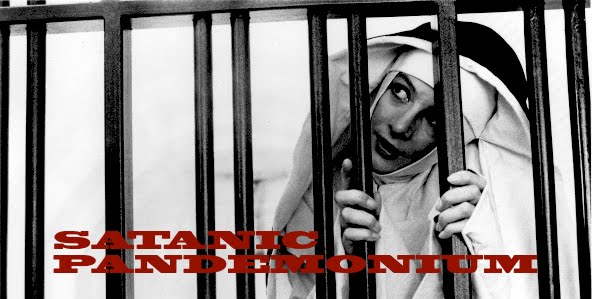Radley Metzger, 1967
Starring: Uta Levka, Claus Ringer, Carl Möhner, Barbara Valentin
"I know her intimately… but not well."
Carmen is a beautiful waitress and con artist who lives by her own rules. She tricks a young policeman, José, who is landed in jail for helping her. When he is released from prison, she pays him back with a night of serious seduction. Predictably, he falls in love with her and wants their relationship to continue. Carmen returns his feelings, but refuses to give up her lifestyle of crime and pleasure. They are forced to go on the run after José kills one of her lovers and things go from bad to worse when he learns she has a husband. Carmen’s stubborn independence and José's passionate jealously spell disaster.
Carmen is based on the novella by French author Prosper Mérimée, first published in 1845. It inspired dozens of adaptations, including the famous opera by Georges Bizet. The novella tells the story of the beautiful gypsy (Romani is the more correct term, I know) woman Carmen and her doomed love with the soldier Don José. The film is a reasonably faithful adaptation of Carmen and runs through all the major plot points in the novel. The tragic crux of the story is that Carmen is determined to be free, not to be owned by anyone or forced to consent to monogamy, even though she is technically a married woman. What made the novella and the opera so shocking are the portrayals of sex, crime, and an outlaw lifestyle (someone should really make a biker version of Carmen).
Though Metzger is unable to present these elements as controversially as Bizet’s opera, Carmen’s sexual promiscuity, strength of personality, and insistence on sexual and emotional freedom represents the origins of a formula he would use throughout almost all of his subsequent films. Carmen’s control over her own sex life and reliance on her sexuality for basic survival sets up most of the sex scenes in the film, though they aren’t particularly erotic or scandalous by today’s standards. With that said, there are some cleverly perverse scenes. Carmen does a dance at a night club that involves her sitting on a wine bottle and has an affair with a politician that turns into a threesome with his kinky wife. A pop singer Carmen seduces drinks alcohol out of baby bottles and makes a few infantilism references, and there is a lovely sex scene shot through colored glasses and bottles. Sex is implied, but never explicitly shown, and there are a lot of facial close ups, particularly during implied oral sex scenes. Overall this is a literary drama with some eroticism, unlike Metzger’s later films which emphasize erotica and/or hardcore sex more than plot.
With Carmen he developed the formula that would become so successful with his later films: an eroticized, modernized literary adaptation with a strong, central female character. Though this is his first color film, it lacks the opulent style and welcome humor that made his middle period so enjoyable. Carmen is one of the darkest of Metzger’s films and though the titular character seems fond of José, she repeatedly mocks his love and manipulates him into aggression and murder, eventually her own. Uta Levka (she appeared briefly in his previous film, The Alley Cats) is absolutely beautiful here, but is a cold, restrained and even mean-spirited version of Carmen. Claus Ringer, an utterly un-Spanish looking José, is unfortunately bland and boring. His lack of personality justifies Carmen’s disinterest in him, which makes the plot less believable.
I would not recommend this jazzy, swinging ‘60s version of Carmen for first time Metzger viewers, but it is worth seeing if you’re a fan of his other work or of ‘60s erotica movies. This film helped kick off some of his later, great works when it received a measure of success, particularly from positive critical reviews and a nice write up from the New York Times. There is a DVD box set from Image Entertainment, The Radley Metzger Collection Volume 3, which includes the superior The Lickerish Quarter and the far inferior The Princess and the Call Girl. Unfortunately these box sets are known for their miserably bad transfers, so I would go with the single disc Image release or just a rental.


No comments:
Post a Comment